The bloody conflict in Sudan
How years of tensions boiled over in the North African country

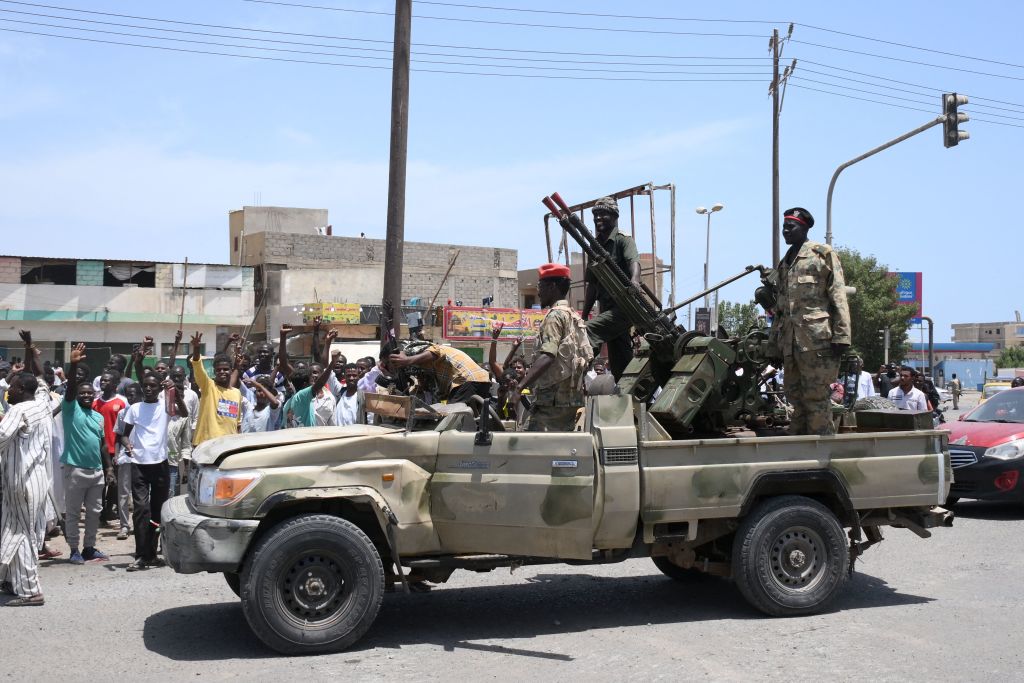
A free daily email with the biggest news stories of the day – and the best features from TheWeek.com
You are now subscribed
Your newsletter sign-up was successful
The North African country of Sudan has long been a powder keg, and tensions sparked bitter conflict between warring factions of the Sudanese military that has led to thousands of deaths. What caused this violence, and how can it be stopped?
What is happening in Sudan?
Armed conflict broke out in April between the Sudanese Army and the Rapid Support Forces (RSF). The latter is a paramilitary organization that emerged out of the Janjaweed militia group during the war in Darfur in the early 2000s, The Washington Post reported. Fighting began after the RSF attempted to seize control of the Sudanese government in an ongoing coup d'etat.
A significant portion of the violence has been concentrated in Sudan's capital city, Khartoum, where "Sudan's army launched airstrikes on a rival paramilitary force's base near the capital in an effort to reassert control over the chaotic country," The Guardian reported. The official death toll throughout the country stands at more than 3,000, according to official government figures. However, a lack of reporting means "the true tally is likely much higher," The Associated Press reported.
The Week
Escape your echo chamber. Get the facts behind the news, plus analysis from multiple perspectives.

Sign up for The Week's Free Newsletters
From our morning news briefing to a weekly Good News Newsletter, get the best of The Week delivered directly to your inbox.
From our morning news briefing to a weekly Good News Newsletter, get the best of The Week delivered directly to your inbox.
The RSF is led by Mohamed Hamdan Dagalo, described by Al Jazeera as "one of the richest and most powerful men in Sudan." Dagalo helped grow the RSF out of the Janjaweed in 2013. Since then, the RSF has "committed a wide range of horrific abuses," Human Rights Watch reported, adding that their "violations of international humanitarian law amount to war crimes."
On the other side of the conflict is the head of the Sudanese Army, General Abdel Fattah al-Burhan, who is "essentially Sudan's leader," CNN said.
The two men were once allies but have since appeared on opposite sides of the conflict after the RSF broke from the military in recent years. Both Dagalo and al-Burhan blamed one another for the war. As the violence erupted, numerous Western nations, including the United States, evacuated their embassies in Khartoum, and the United Kingdom has also helped lead the evacuation of thousands of civilians from Sudan.
With the conflict stretching into its fourth month, widespread humanitarian issues are continually being reported. Many of these problems are affecting kids. "At least 14 million children — a number roughly equivalent to every single child in Colombia, France, Germany or Thailand — are in dire need of humanitarian support," according to UNICEF deputy executive director Ted Chaiban. More than a million children have also "been driven from their homes…and are now on the move within Sudan or crossing its borders, vulnerable to hunger, disease, violence, and separation from their families," Chaiban added.
A free daily email with the biggest news stories of the day – and the best features from TheWeek.com
What led to the violence?
It is largely the result of tumultuous happenings within Sudan's government. In 2019, the country finally saw a change after a coup ousted Omar al-Bashir, an autocratic leader who was accused of numerous war crimes during his three decades in power. He was replaced by a new prime minister, Abdalla Hamdok, who attempted to create a democratic, civilian-led government.
However, Hamdok himself was deposed from power during a military coup in 2021. Ironically, that overthrow was led by Dagalo and al-Burhan together, in a coup that was "jointly orchestrated by the two generals who were then allies," NBC News reported. This led to the replacement of Hamdok's civilian government with a system led by al-Burhan and the military.
Since then, though, the RSF and the Sudanese Army have each been battling for power, with both al-Burhan and Dagalo attempting to angle their forces for an eventual showdown. There was an initial plan in place to help Sudan transition back to a civilian-led government, which would have required both the army and the RSF to agree to stop the power struggle. However, negotiations broke down, and "the army accused the RSF of illegal mobilization in preceding days and the RSF, as it moved on key strategic sites in Khartoum, said the army had tried to seize full power," Reuters noted. Within days, large-scale fighting had broken out.
What's the end game?
A key step toward de-escalation would be allowing mediators to bring both sides to the table. This could be accomplished by a coalition of the UAE, Saudi Arabia, the U.S., and the U.K., "which has sponsored mediation in Sudan along with the UN and the African Union," The Guardian reported.
However, previous attempts to find peace have failed, as have efforts to bring long-term mediators to the table. UN Secretary-General António Guterres released a statement condemning the atrocities on both sides, describing "an utter disregard for humanitarian and human rights law that is dangerous and disturbing." Even with outside aid, Guterres warned that the conflict has "pushed Sudan to the brink of a full-scale civil war, potentially destabilizing the entire region."
As Sudan continues to devolve, there have been calls for additional pushes from Western nations to intervene more than they have been. The United States "should ensure that the [UN] takes robust measures to stem ongoing atrocities in Darfur, including by imposing targeting sanctions against those responsible for ongoing abuses," Human Rights Watch said. The Biden administration should "ensure that the UN Security Council finally acts to protect civilians," added Tirana Hassan, executive director of Human Rights Watch.
Aug. 8, 2023: This article has been updated throughout with the latest developments.
Justin Klawans has worked as a staff writer at The Week since 2022. He began his career covering local news before joining Newsweek as a breaking news reporter, where he wrote about politics, national and global affairs, business, crime, sports, film, television and other news. Justin has also freelanced for outlets including Collider and United Press International.
-
 6 of the world’s most accessible destinations
6 of the world’s most accessible destinationsThe Week Recommends Experience all of Berlin, Singapore and Sydney
-
 How the FCC’s ‘equal time’ rule works
How the FCC’s ‘equal time’ rule worksIn the Spotlight The law is at the heart of the Colbert-CBS conflict
-
 What is the endgame in the DHS shutdown?
What is the endgame in the DHS shutdown?Today’s Big Question Democrats want to rein in ICE’s immigration crackdown
-
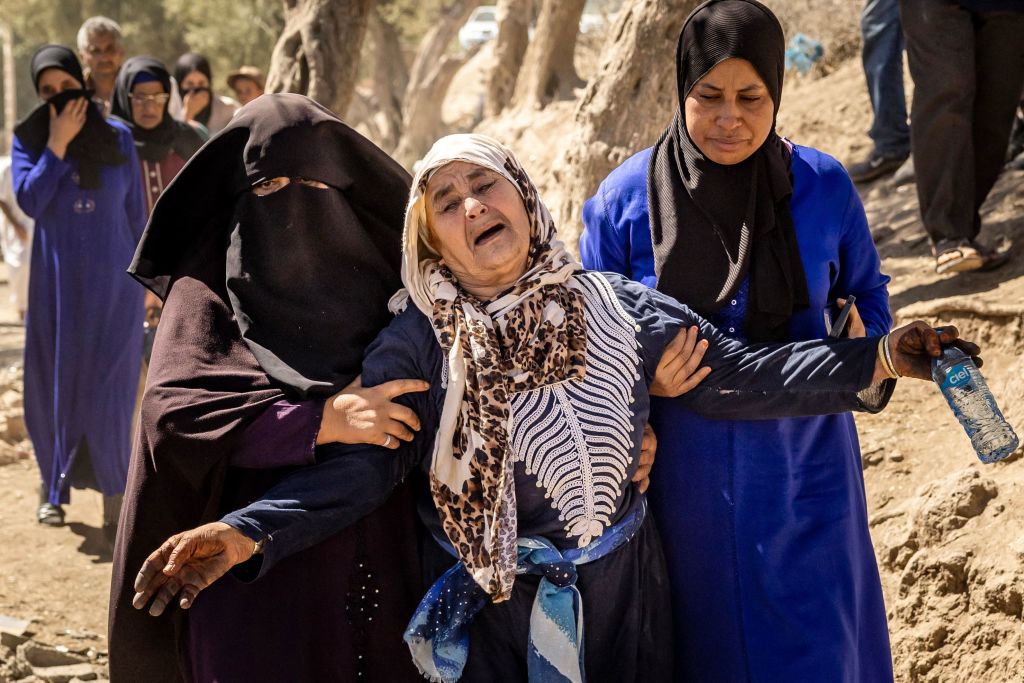 10 things you need to know today: September 10, 2023
10 things you need to know today: September 10, 2023Daily Briefing Aftershock strikes Morocco as death toll rises, approval of new Covid shots likely coming within days, and more
-
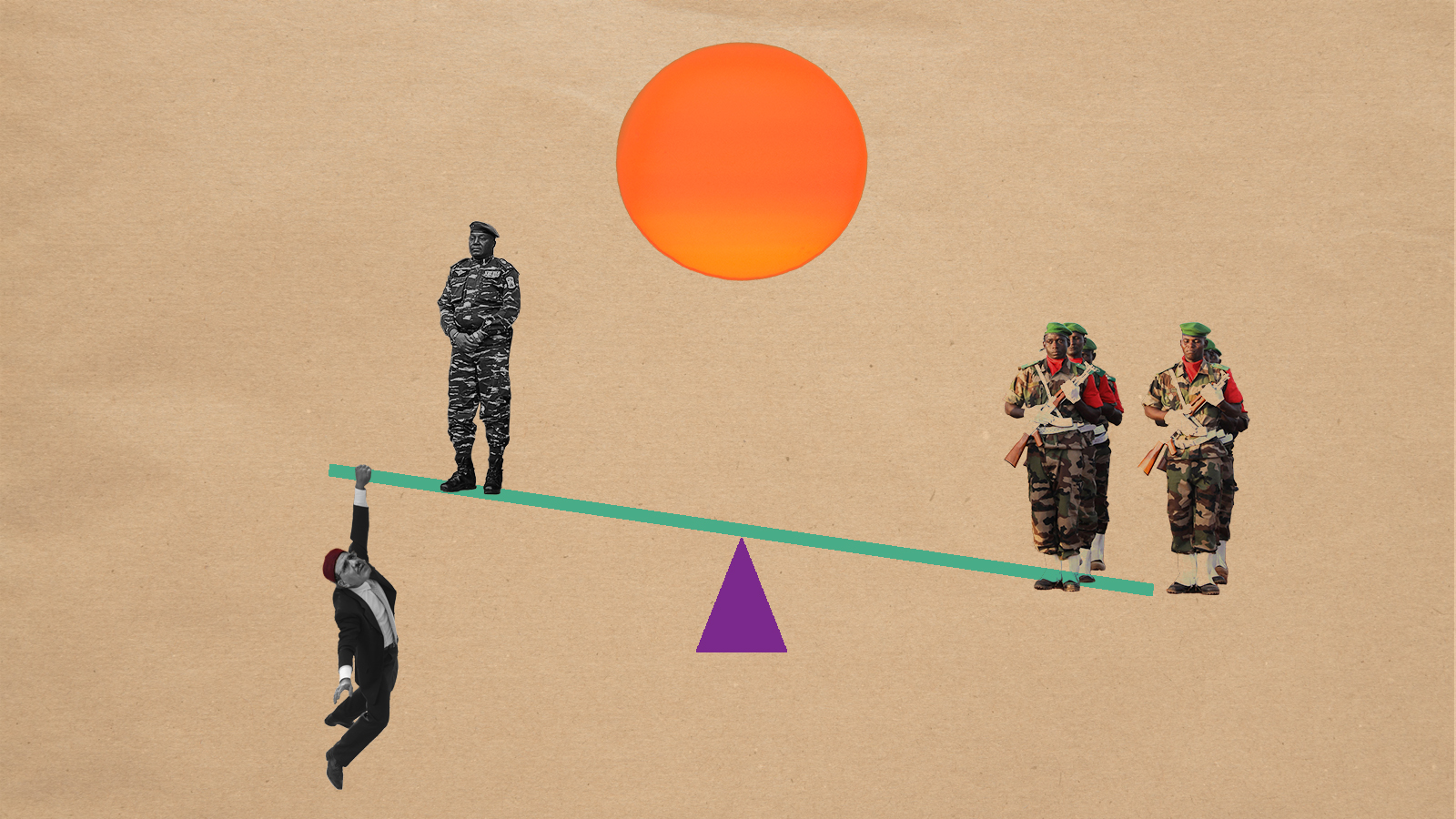 How Niger got here and what it could mean for West Africa's future
How Niger got here and what it could mean for West Africa's futureIn Depth The nation is in turmoil following a military coup
-
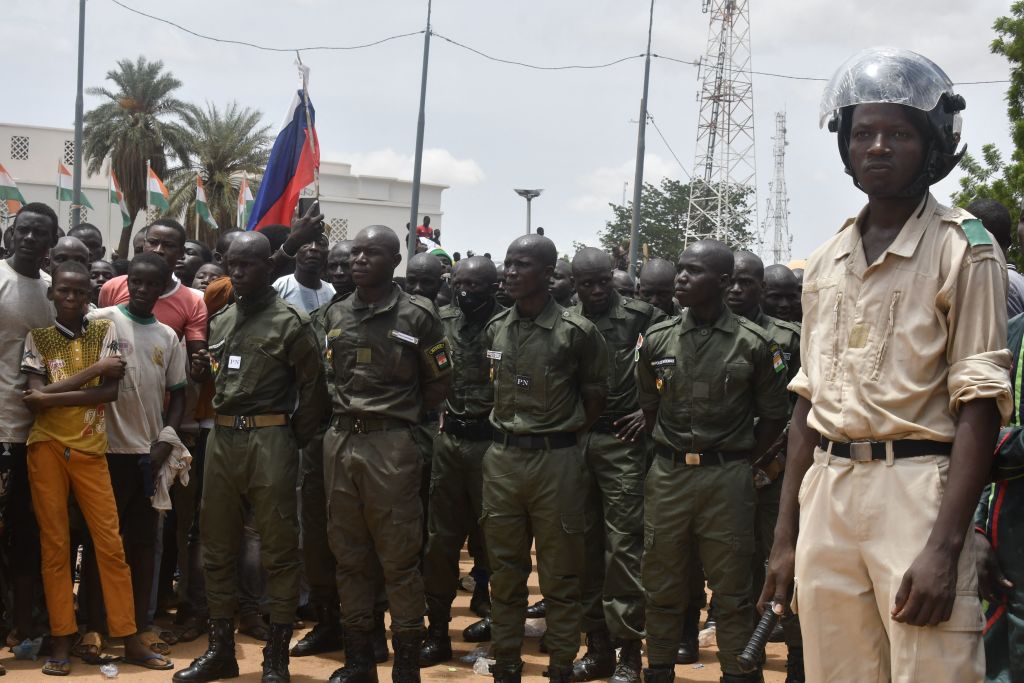 10 things you need to know today: July 30, 2023
10 things you need to know today: July 30, 2023Daily Briefing Federal judge dismisses Trump lawsuit against CNN, West African leaders to meet over Niger coup, and more
-
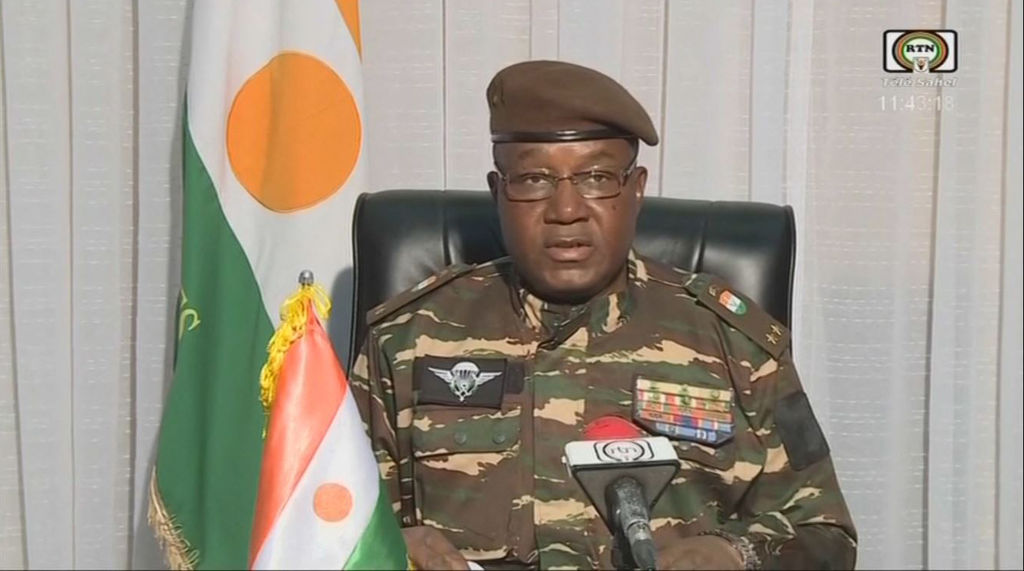 Niger general declares himself country's new leader following coup
Niger general declares himself country's new leader following coupSpeed Read
-
 Is the 'vibecession' over?
Is the 'vibecession' over?Speed Read The IMF reported that the global economy is looking increasingly resilient. Is it time to start celebrating?
-
 The U.S. veterinarian shortage crisis
The U.S. veterinarian shortage crisisSpeed Read With an anticipated shortage of 15,000 vets by 2030, it will be harder to get care for pets
-
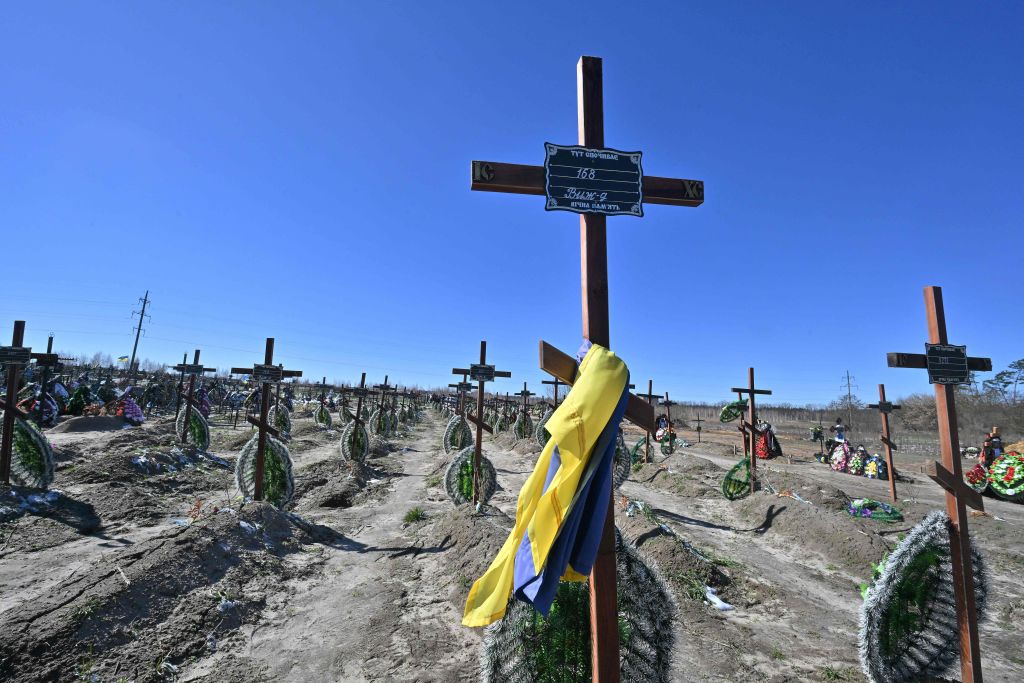 Inside Russia's war crimes
Inside Russia's war crimesSpeed Read Occupying forces in Ukraine are accused of horrific atrocities. Can they be held accountable?
-
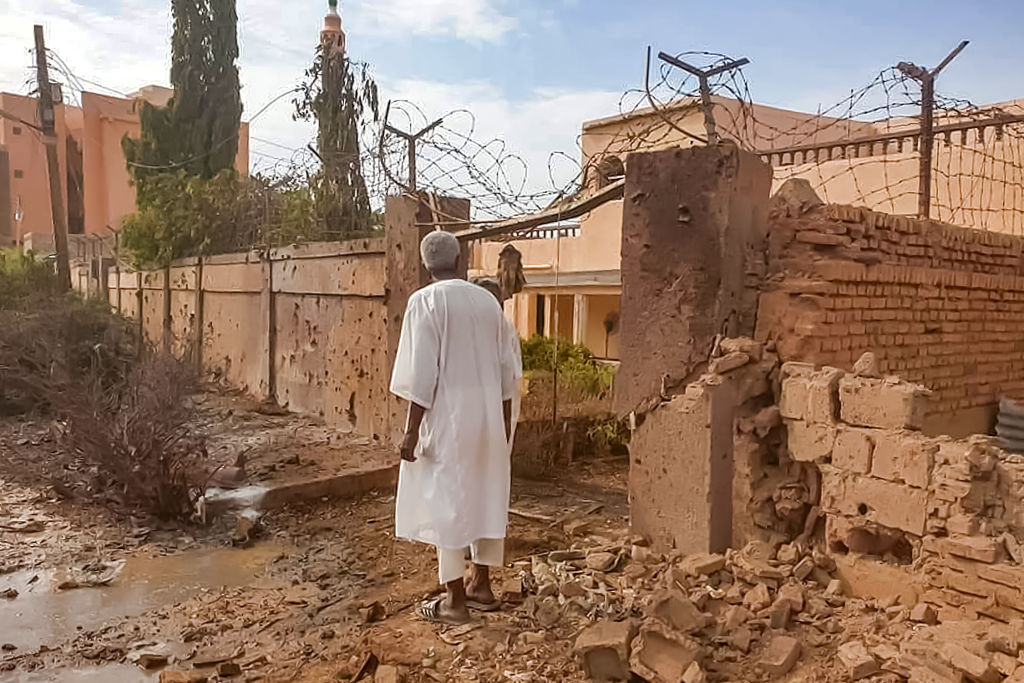 At least 22 killed following airstrike in Sudan as civil war looms
At least 22 killed following airstrike in Sudan as civil war loomsSpeed Read
